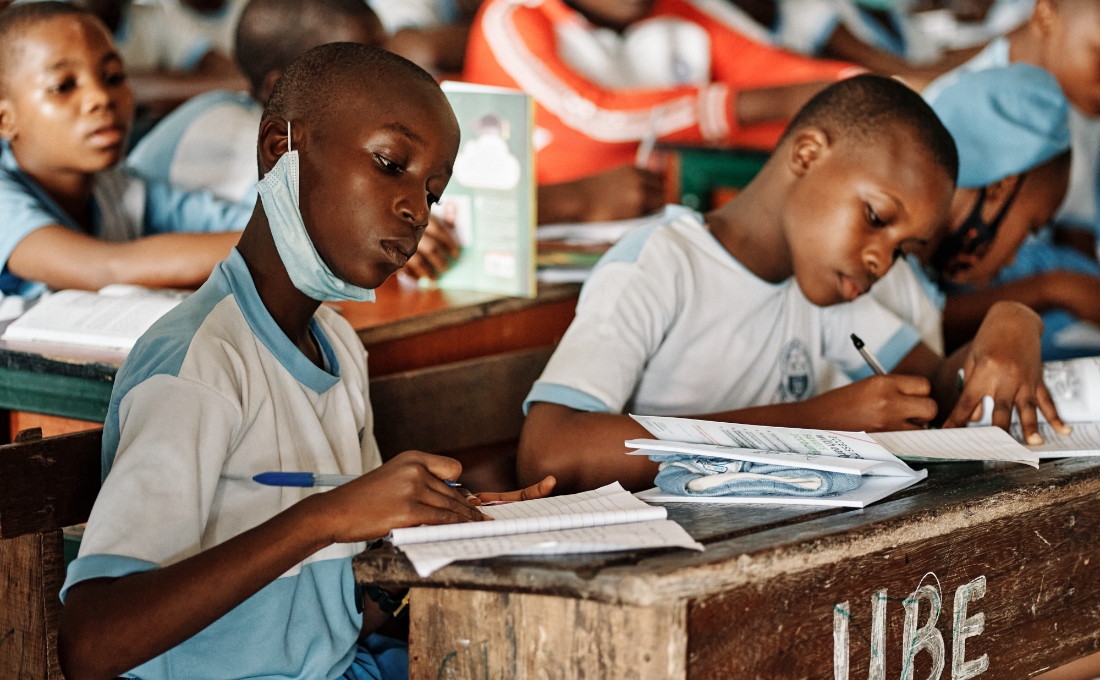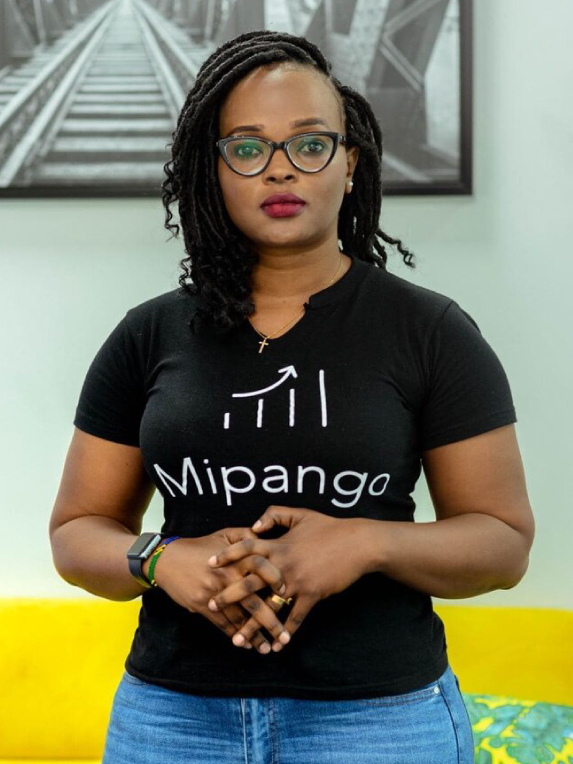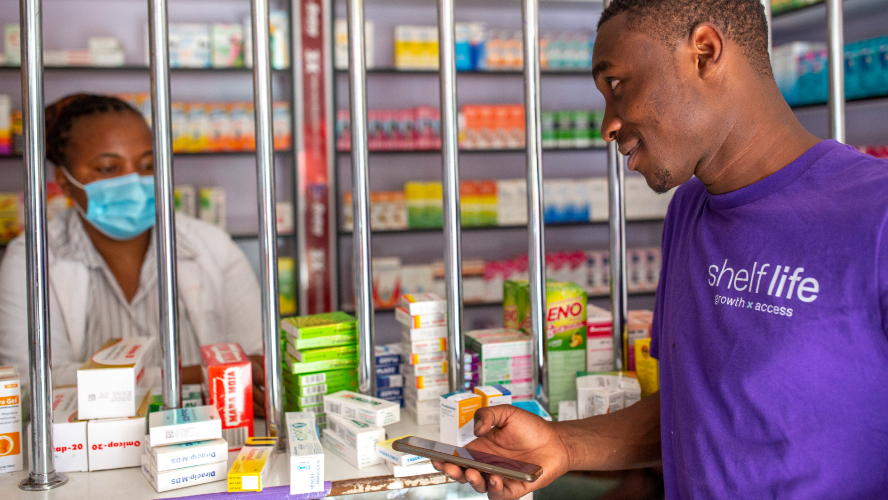
How AI is transforming day-to-day life in Africa
Equipping talented people with the skills they need to transform the continent.
Equipping talented people with the skills they need to transform the continent.

Startups are working to help school children like these in Port Harcourt, Nigeria, to benefit from the latest AI technology. Photo source: Shutterstock
Today, children in Africa can receive personalized textbooks and homework assignments based on their level of understanding of different subjects. Unbanked people can get loans to start new businesses. And the shelves of community pharmacies across the continent are always stocked with life-saving drugs. These are just some of the ways that companies in Africa are using AI to transform the lives of millions of people on the continent.
According to the venture capital firm Partech Partners, the number of funded technology companies on the continent grew six times faster than the global average from 2015 to 2020, a 44% year-over-year growth, compared to a global average of 8%.
Countries in Africa have an impressive track record of utilizing technology to empower their citizens. To give just one example, more than 40 million people in Kenya today—some of them without bank accounts—use a digital currency called M-PESA to buy goods and services via credits stored on their mobile accounts.
Now, AI companies are building on this history of digital innovation to develop products and services to even further transform the lives of millions of people on the African continent.

Empowering the unbanked
According to the World Bank, over 66% of the adult population in Africa is unbanked. Tanzanian Lilian Makoi is a serial entrepreneur with a passion for developing digital products and services that are cheap and accessible. She is the founder of mobile micro-health insurance service Jamii. She is now the CEO of Mipango, an AI-based personal finance mobile application that helps users manage their income, expenses, and savings, while accessing relevant investment opportunities.
“We help users understand and take up financial products and invest so that they can achieve financial freedom and sustainability,” Makoi says. “Our AI algorithm can study a customer’s income and spending patterns to provide timely advice on a variety of financial matters—from recommending investment opportunities to cutting down on unnecessary expenses.”
On the western side of the African continent, Yvonne Johnson is the CEO and co-founder of Nigerian startup Indicina. Indicina is building an ML-powered credit infrastructure to close the huge consumer credit gap on the continent and drive economic inclusion.

“Our core product is a full-stack API toolkit to digitize customer journeys. This includes onboarding, data aggregation, financial analytics, and payments. Our products leverage ML to drive risk innovation. Specifically, we apply predictive analytics on big—financial and alternative—datasets during credit underwriting for unbanked and under-banked consumers and SMEs,” Johnson said.
“It de-risks lending, which means more credit can be extended profitably.” This is important, as Sub-Saharan Africa struggles with economic exclusion but has attained high digital inclusion. “Digitization leads to large data exhaust, which presents an incredible opportunity within financial services on the continent,” Johnson said.
A healthy AI-based future
“I worked in supply chain tech for years [and] it was very clear that there was a huge gap when it came to supply chain tools, which actually work…when you’re trying to help a health worker or pharmacist keep life-saving commodities on the shelf for their community in Nigeria or Kenya,” Justin Lorenzon, the co-founder and CTO of Nigerian company Field Intelligence, said.

Pharmacists benefit from the data-driven distribution service Shelf Life by Field Intelligence. Photo source: Field Inc.
His company is building a new generation of AI-based healthcare supply chains, developing enterprise platforms, and managing logistics information for large-scale public health and community pharmacies. Field Intelligence uses live practical data to build sustainable and efficient supply chains to improve healthcare access across Africa.
The company’s product Shelf Life is a data-driven pharma distribution service for community pharmacies, which often serve as the first point of care for the majority of people in Sub-Saharan Africa. Shelf Life tackles the issues of availability and accessibility by supporting pharmacists with a full-service, next-gen supply chain, and it also offers pay-as-you-sell subscriptions.
“We run both the public health and pharmacy services on our in-house platform Field Supply, which is an offline-capable, cloud-based supply chain management system. It is built from the ground up to allow for highly resilient distributed offline data collection and management, provides intuitive interfaces so our users can pick it up with minimal or no training, is instantly available for anyone with a smartphone, and plugs users directly into a host of cloud-based planning and analytics services,” Lorenzon said.
It has had an immediate impact. Those who have subscribed to Shelf Life have seen sales increase by an average of 25% in their first year, and Field now works with more than 330 pharmacies in Lagos and more than 100 in Kenya and has serviced over 1.2 million patients in total.
“Last month we celebrated the delivery of the 200 millionth pharmaceutical intervention through our services across Kenya and Nigeria, simply through the provision of a simpler, data-centric supply chain management system to the healthcare value chain,” Lorenzon said.
When it comes to the wider potential of AI and ML technologies in the healthcare supply chain, he says their ability to improve predictions, optimize, and detect anomalies is immense.
AI manufacturing the future
AI has even begun to penetrate the manufacturing space in Africa, not one known for adapting quickly to new ways of doing things. And the impact here is potentially transformative, particularly when it comes to the environmental footprint of a heavy industry.
Frans Cronje is the co-founder and CEO of South African AI company DataProphet, which is pioneering use of such technologies to decrease waste and increase productivity in the manufacturing sector.
DataProphet provides manufacturing plants with AI solutions, which are specifically implemented to assist these sites to hit their production KPIs. Its flagship product, DataProphet PRESCRIBE, works to continuously optimize a production plant’s control plan.
“A control plan is similar to a recipe, but rather than guiding you on how to bake a cake, a control plan might provide instructions as to how to make an engine block,” Cronje said.
PRESCRIBE works to collect all that information continuously, evaluate it, and then determine what the best next adjustment is and push that back to the line operators to guide them on how to improve their processes. Usually, DataProphet focuses on reducing scrap or waste in the production process.
At a medium-sized foundry, this means DataProphet prevents 3,000–6,000 tons of iron being scrapped and remelted each year—preventing wasting the additional energy required for that remelt, not to mention the time and effort that has gone into the production of individual units. Quite some impact.
“We have done this same work with a wide mix of different production processes, including welding, rolling mills, [and] aluminum foundries, and we are expanding into semiconductor fabs and tire manufacturing,” Cronje said.
Understandably, he believes the potential for AI in manufacturing is vast.
“As a sector, it produces the most data, when compared to every other sector, including telecommunications, government, and finance. This data often describes a deeply intricate causal physical process that, in many advanced manufacturing sites, is very difficult to correctly characterize with traditional approaches. This all provides the perfect background to apply advanced AI techniques to the environment to provide obvious value,” Cronje said.
Real impact, real opportunity
Almost 60% of the population of Africa is under the age of 25, which makes the role of education across the continent especially crucial. As a United Nations report from 2018 notes, “[this] offers an immense opportunity for investing in the next generation of African leaders and entrepreneurs.” Unfortunately, the educational system is often not up to the challenge, as that report notes.
“Results from regional assessments by the UN indicate ‘poor learning outcomes in Sub-Saharan Africa, despite an upward trend in average learning achievements.’ Many children who are currently in school will not learn enough to acquire the basic skills needed to lead successful and productive lives.”
The Nigerian company Gradely is applying AI to education, in an effort to ensure that students don’t fall through these educational cracks. The startup uses AI to help parents and schools intervene in real time to plug student learning gaps. Via its adaptive learning platform, identifying learning gaps early is possible, and Gradely is able to recommend specific ways to close them.
“Gradely uses data analytics to help a child perform better academically. Gradely uses a fork of pandas library to process a child performance and TensorFlow for recommendation,” said co-founder and CEO Boye Oshinaga. “It has an impact on decision-making. We’ve been able to access student mastery after a series of practices.”
The benefit of AI in the ed-tech sector, he said, is that it can make tech platforms self-reliant in making decisions on personalized learning patterns, with little human intervention. This has major advantages, just as Field Intelligence’s work in automating healthcare supply chains does.
“The main resource for doing research is talented people, and you will find more talent in Africa than anywhere else,” Moustapha Cisse, the director of Google AI Ghana, told MIT Technology Review. “The energy for tech here is just amazing. The question is how do you equip those talented people with the skills so that they own the transformation of the continent and build their own future? The future of machine-learning research is in Africa whether people know it or not.”
Tom Jackson is the co-founder of Disrupt Africa, a news, information, and commentary website covering the continent’s technology startup and investment ecosystem.
